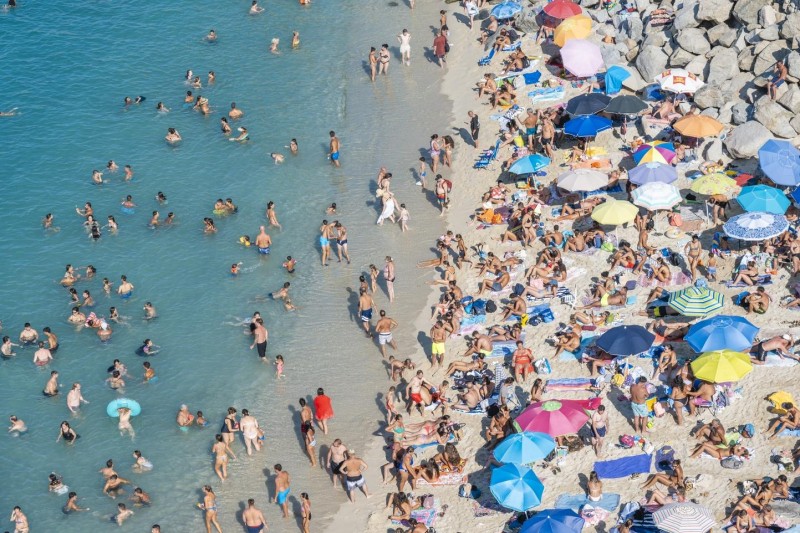Sure! Here’s a simplified, engaging, and well-structured version of your text with emphasized keywords and an inviting call-to-action for booking a vacation:
European Travel in 2025: What You Need to Know
Tourism is booming in Europe, especially in popular spots like Italy. But with more visitors comes new rules, bans, and fines to curb overcrowding.
Heading to Europe this summer? Think carefully before lighting a cigarette on the beach or walking shirtless along the boardwalk. Visitor numbers are expected to reach record highs in 2025, and many countries are cracking down.
New Restrictions You Should Know About
Some rules are surprising and strict, like banning music on beaches, outlawing drinking in certain areas, and limiting selfies in crowded villages. You might even get fined for wearing flip-flops while driving—even though it’s not technically illegal!
This crackdown is part of a broader effort to combat overtourism. Last spring, protests against tourism erupted across Spain—from Madrid to Mallorca. More protests are planned for June 15, including marches and airport demonstrations.
Important Tips for Travelers
Before you pack your bags, research the local rules. Here’s a quick overview:
Spain: Leading the Charge
Spain is tightening rules on tourist behavior, especially on beaches. Many coastal towns—like Barcelona, the Balearic Islands, and Costa del Sol—ban smoking on beaches, with fines up to €2,000 (about $2,260).
In some regions, reserving a sunbed and then disappearing can cost you €250 ($283).
Public urination—even peeing in the sea—is punishable, with fines reaching €750 ($848).
Be mindful of what you wear: Malaga fines people for walking around in swimwear outside the beach. Barcelona enforces penalties for bikinis in public.
Driving and Nightlife Restrictions
Spanish authorities are also targeting tourists behind the wheel. While driving in flip-flops isn’t illegal, police can fine you up to €200 ($226) if they see your footwear as unsafe.
In nightlife hotspots like Mallorca, Ibiza, and the Canary Islands, party restrictions are strict. Pub crawls and party boats are often banned, and public drunkenness can lead to fines up to €3,000 ($3,390).
Plan Your Trip with Care
Knowledge is power—and staying aware of these rules will help you enjoy your holiday without trouble.
Ready to explore Europe? Why not make your dream trip happen with a vacation package from MWR LIFE? Experience the beauty and culture of these destinations, hassle-free.
Book your European getaway today and let MWR LIFE turn your travel dreams into reality!
Would you like me to help craft a promotional message for your vacation packages or suggest specific destinations?
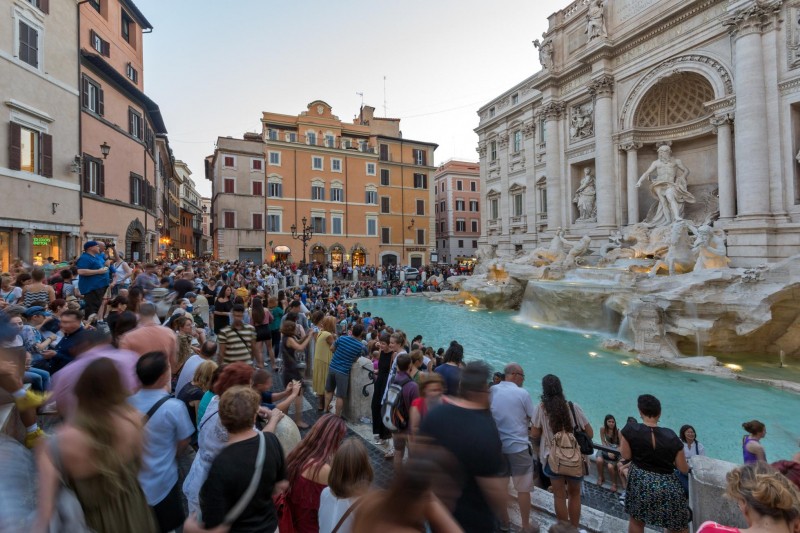
Certainly! Here’s a simplified, well-organized, and engaging version of your text with highlighted keywords and a compelling invitation to book a vacation with MWR LIFE:
Italy in 2025: New Rules & Restrictions for Tourists
Overtourism in Italy is leading to stricter rules and fines at popular destinations. If you’re planning to visit, be prepared to follow new regulations to avoid hefty penalties.
Venice: New Entry Fees and Bans
Venice is now charging day-trippers a fee to enter the city. Prices range from €5 (about $5.65) for bookings in advance to €10 (about $11.30) for last-minute visitors. Guests with hotel reservations are exempt.
Travelers caught without proof of payment could face fines up to €300 (about $339). Venice also banned loudspeakers, large tour groups, and swimming in canals, with violations carrying fines of €1,000 (about $1,130).
Crackdowns in Other Italian Towns
Other towns are also clamping down on unruly tourism:
- In Portofino, you can be fined up to €275 (about $300) for taking selfies and blocking pedestrian flow.
- In Lake Garda, fines of €700 (about $763) are issued for jumping from cliffs or swimming in dangerous areas.
- A rowdy game of football could cost €600 (about $654).
Dress Code & Visitor Limits
Dress codes are strictly enforced:
- In Sorrento, walking around in swimwear outside the beach can result in a €500 fine (about $545).
Popular sites are limiting visitor numbers:
- Pompeii will cap daily visitors at 20,000.
- The Colosseum in Rome is restricting 3,000 visitors at a time.
Be cautious of scam artists selling tickets—only buy from trusted sources, or risk fines.
Planning Your Trip?
Stay informed about these rules to enjoy Italy without trouble. Italy is a stunning destination—make the most of your visit!
Ready to explore Italy and other beautiful European spots? Book your vacation with MWR LIFE today and turn your travel dreams into reality!
Would you like me to craft a promotional message or help suggest specific destinations for your vacation packages?

A picnic along the Seine in Paris may look idyllic—but drinking alcohol in many public areas is banned.
France
In France, authorities are increasingly asking visitors to show a little more respect. Take Paris. While having a picnic of wine and cheese in a park or along the Seine might seem très romantique, drinking alcohol is banned in many public areas, so research the rules. If you’re caught, fines can reach €135 (about $153).
In France, the fashion police is a real thing. Several towns along the Côte d’Azur have banned overly revealing swimwear away from the beach, including Cannes, where walking around shirtless or in a bikini can result in a fine of up to €38 (about $43).
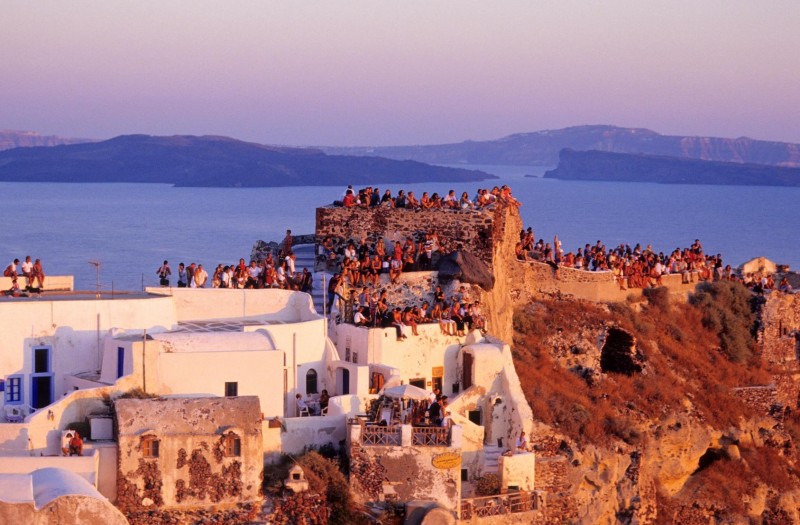
Sunset crowds in Kastro, Oia. With visitor numbers surging, Greece is capping cruise ship arrivals and introducing new tourist fees to help ease overtourism on islands like Santorini.
Greece
Greece is getting serious about protecting its cultural landmarks and natural beauty. Starting this summer, cruise passengers disembarking at Santorini or Mykonos between June and September will face a €20 (about $23) per-person fee. The islands are also limiting cruise arrivals—Santorini now caps daily cruise visitors at 8,000 to ease overtourism.
Greece has also implemented beach preservation rules, requiring 70% of public beaches to remain free of sunbeds. Drones are used to monitor compliance. And forget about bringing home a souvenir from nature: In many areas of the country, collecting seashells or pebbles from beaches is illegal, with fines up to €1,000 (about $1,130).
There are land-based rules, too. Wearing high heels at archaeological sites is prohibited, with fines of up to €900 (about $1,017) to prevent damage to fragile ancient surfaces. The Acropolis now has a cap of 20,000 visitors per day, with timed-entry tickets to reduce crowding.
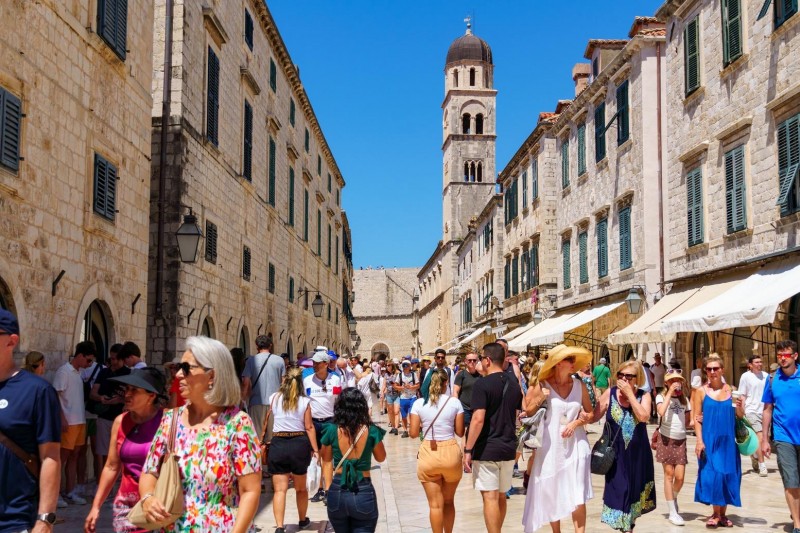
Tourists crowd Dubrovnik’s Old Town, a UNESCO site long impacted by overtourism. Croatia has introduced cruise ship caps, cut taxi numbers and imposed fines to help restore calm.
Croatia
Croatia is cracking down on unruly behavior and crowd control, especially in its most popular summer hot spots. In Split, walking around the historic city center in swimwear—or worse, underwear—is strictly forbidden, with fines up to €150 (about $170). The rules are even tougher in nearby Hvar: There are new quiet hours, and visitors can be fined €600 (about $678) on the spot for drinking in public
Meanwhile, the mayor of Dubrovnik—one of the most overtouristed locations in Europe–is pushing back in a big way.
Only two cruise ships are allowed to dock in the city per day, souvenir stands have been shut down, cafe chairs have been reduced, taxi service has been curtailed and more. The goal? A calmer, more livable city—for locals and tourists alike.
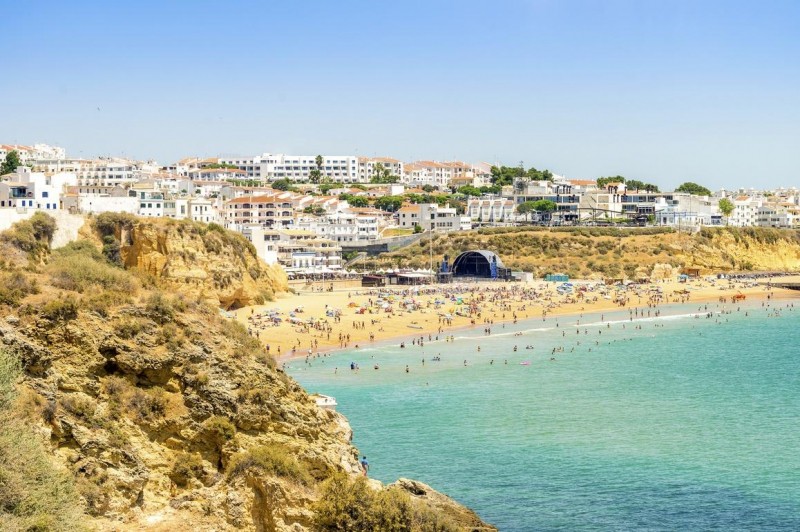
A busy beach day in Albufeira, Portugal. As tourist numbers soar, coastal towns like this are enforcing stricter rules—banning public drinking, limiting noise and imposing fines for walking around in swimwear.
Portugal
Portugal is cracking down on unruly behavior, especially in coastal hotspots like Albufeira, where tourists can be fined a staggering €1,500 (about $1,695) for walking around town in swimwear—and even higher penalties for public nudity. The rules also target street drinking, urination and spitting.
Noise is also under fire in Portugal: High-volume speakers are now banned on many beaches, with fines up to an eye-watering €36,000 (about $40,680). Some areas are shortening bar hours to curb late-night chaos. And in Sintra, protests by locals have officials considering limits on hotel development to preserve the town’s historic charm.
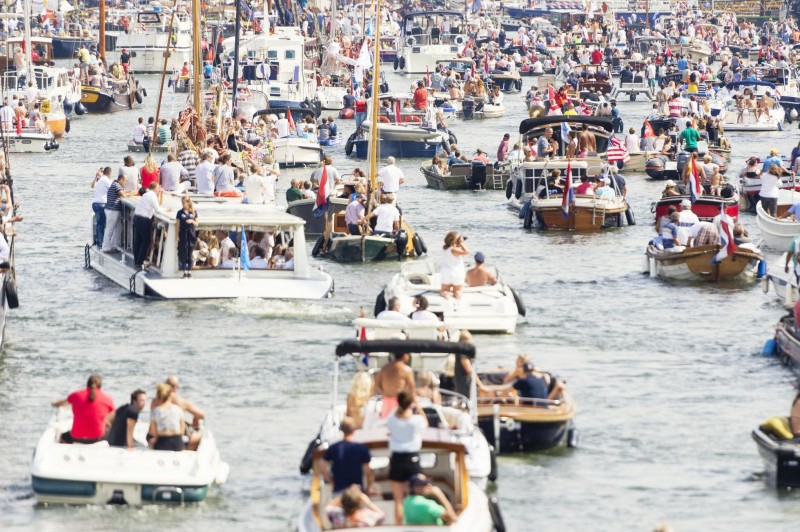
A crowded scene on the IJ River in Amsterdam. As overtourism spikes, the Netherlands is introducing stricter rules for boat parties, group tours and cannabis use to protect the city’s quality of life.
Netherlands
Amsterdam is cracking down on tourism in a big way.
The city’s “Stay Away” campaign targets partygoers with ads warning them not to come. Smoking cannabis on the street in the Red Light District is now banned, bars close earlier, and group tours face stricter limits.
Boat parties have new rules around noise and alcohol.
New hotel development is being banned. Locals are even suing TikTok famous shops that are attracting overtourism. The message is clear: respect the city—or stay home.
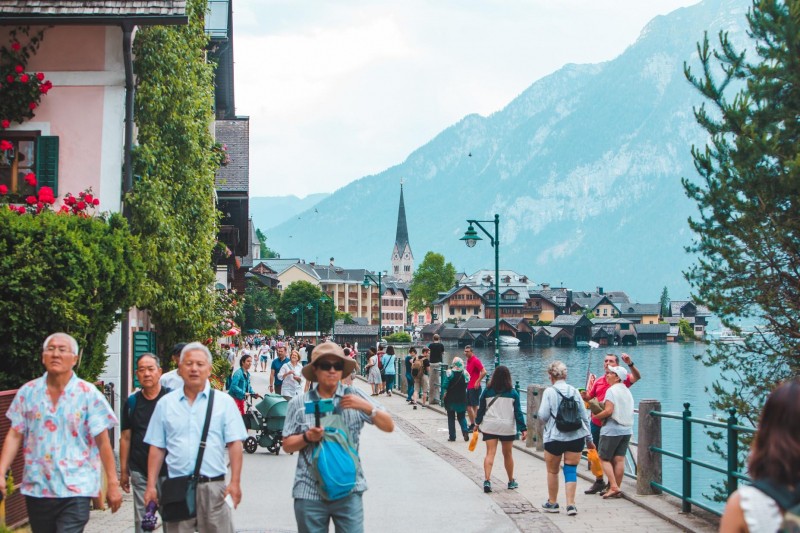
Tourists crowd the lakeside streets of Hallstatt, Austria—a fairytale village grappling with overtourism. The town temporarily installed a “selfie fence” to reduce congestion at popular viewpoints.
Austria
Austria is cracking down on overtourism with rules that target both selfies and short-term rentals. In the mountain town of Hallstatt—said to have inspired Disney’s Frozen—a temporary “anti-selfie” fence was installed to block crowds from overwhelming the town’s famous lake views. And here’s a lesser-known rule: Leave that dashcam at home. They are largely banned in Austria due to privacy laws, and using one can lead to fines as high as €25,000 (about $28,250).
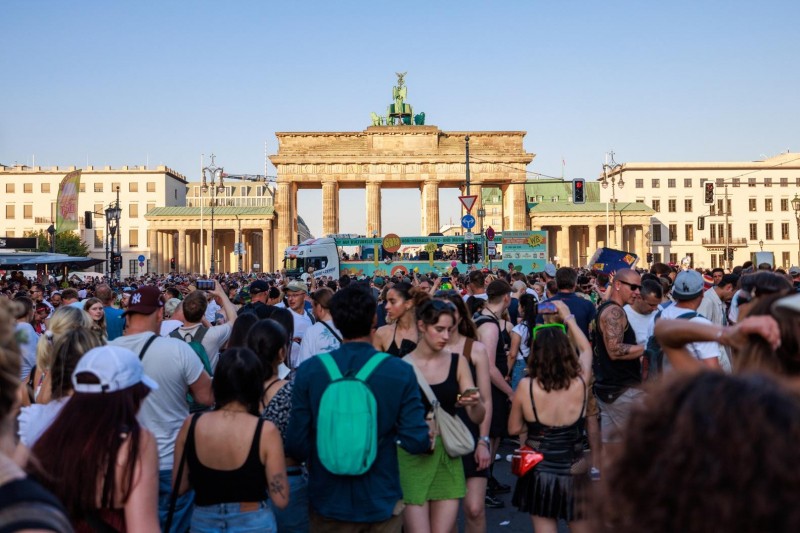
Rave the Planet, Berlin’s famous techno parade, draws massive crowds each summer. But with noise complaints on the rise, authorities are enforcing stricter rules to curb rowdy tourist behavior.
Germany
In Germany, bad behavior behind the wheel can cost you—literally.
Shouting insults or making rude gestures while driving (even at other drivers or the police) is considered “road rage” and can result in fines up to €4,000 (about $4,520).
The country has also cracked down on rowdy tourist behavior in cities like Berlin, where noise ordinances and public drinking bans are increasingly enforced in neighborhoods fed up with party tourism. And be careful about jaywalking: It’s illegal.
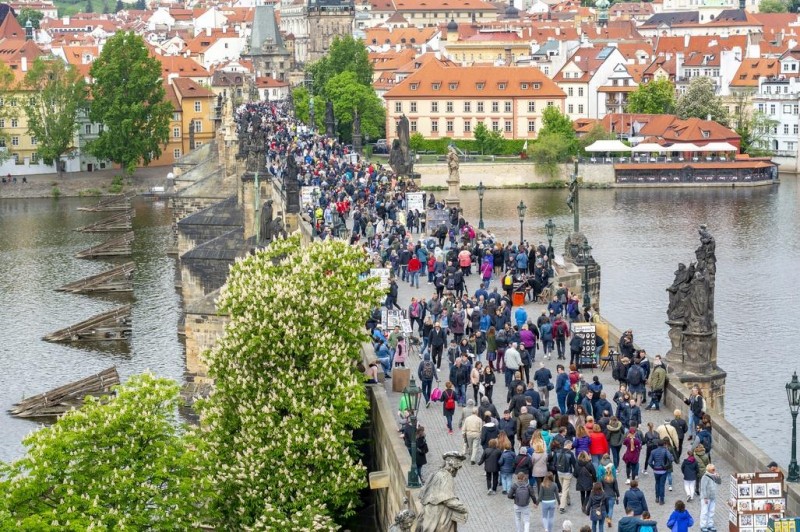
Crowds of tourists cross Prague’s iconic Charles Bridge. As visitor numbers surge, the city is cracking down on pub crawls, beer bikes, and late-night partying to preserve its historic core.
Czechia
Prague is trying to shed its party capital image. The city has banned beer bikes, limited noise in historic areas and cracked down on public drinking, pub crawls and rowdy bachelor and bachelorette parties. Bars even face fines if they serve already-intoxicated tourists.
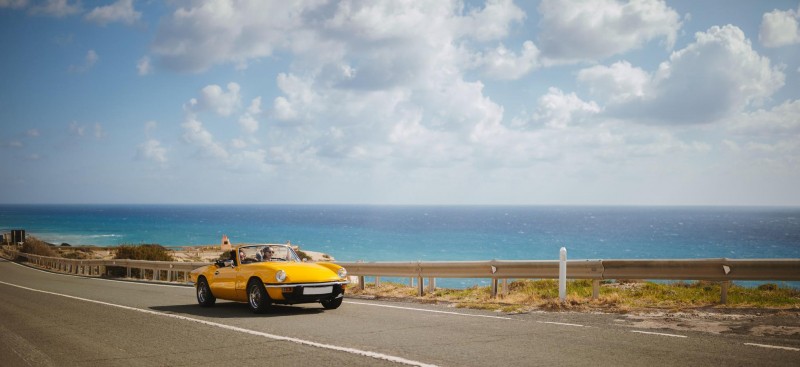
A coastal road in Cyprus overlooking the sea. Local authorities are enforcing little-known driving rules—like banning eating or drinking (even water) behind the wheel—with fines for violations.
Cyprus
Thinking of sipping a bottle of water while driving in Cyprus? Don’t. Eating or drinking anything behind the wheel—including water—is against the law and could get you fined €85 (about $96). It’s considered a distraction, and local police enforce it.
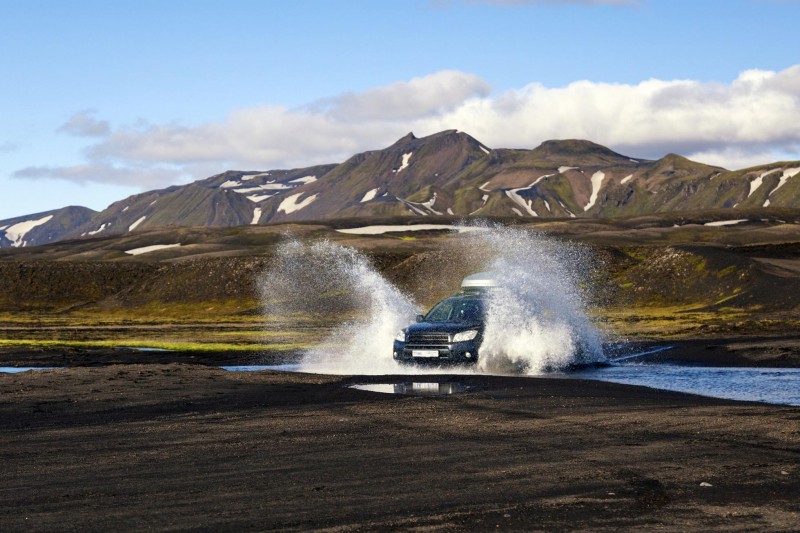
Off-road driving is banned in Iceland to protect its fragile environment. Violators face steep fines.
Iceland
Iceland has had enough of tourists trampling its fragile landscapes. Off-road driving is strictly banned and can result in fines up to ISK 500,000 (about $3,600). Disrespect the rules, and you’ll pay—literally and environmentally.
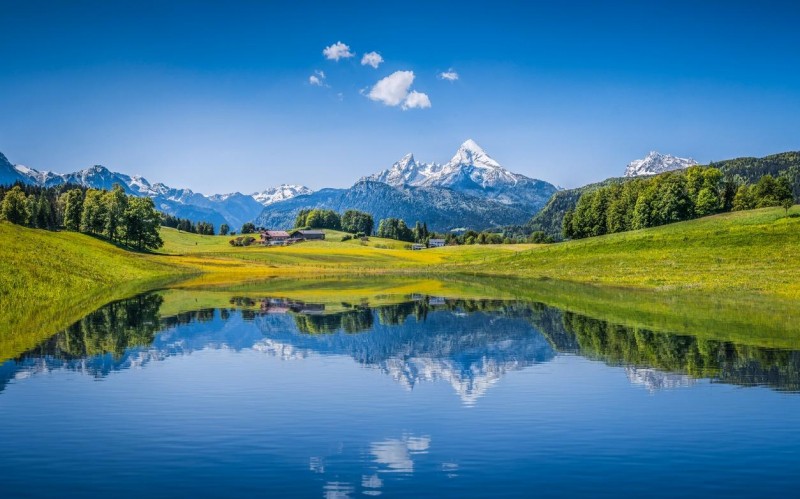
Switzerland’s picture-perfect landscapes come with strict protections. Littering and noise violations can result in on-the-spot fines to help preserve the peace.
Switzerland
Switzerland is picture-perfect, and there’s a reason why. The country has strict rules to preserve its pristine environment. Littering can result in on-the-spot fines, and being too loud late at night or leaving behind trash in public areas can earn you hefty penalties. In Zermatt, the town is car-free, and gasoline vehicles are prohibited to reduce pollution; electric taxis are the norm. And remember: Wherever you’re headed, make sure you’re up to speed on the latest Europe travel rules—or risk paying the price.
ForbesMove To Europe: 8 Secret Towns Where You Can Live Well (For Less)ForbesAn Insider’s Guide To One Of The Most Famous Neighborhoods In ParisForbesThe 14 Easiest Countries To Get Citizenship In 2025, According To A New Report
